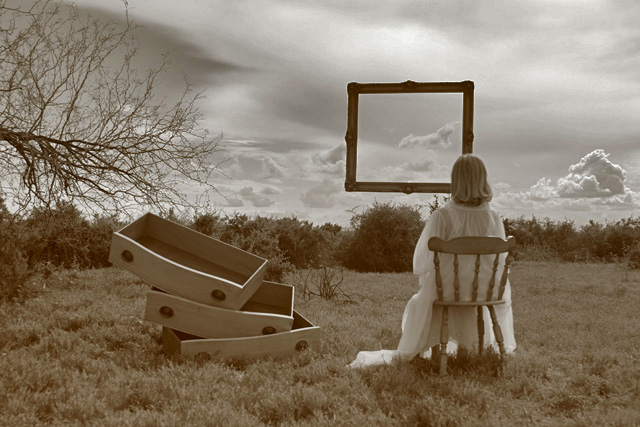First off, I want to both apologise to you and thank you profusely. I haven't written in months (for reasons that will soon become clear!) for which I owe you an apology. However, I wanted to thank you for sticking in there, and for some of the wonderful comments I've had on various posts recently. I really love to hear from you, so thank you, and I'm glad if these posts have been helpful for you in my absence.
Perhaps you're entering your second year of your PhD. Maybe you've just finished it, like I have. Either way, you've found yourself reading this post, and you're guessing from the title I'm going to be a tiny bit not-quite-optimistic about my second year review. But, I'm going to be as objective as possible. You can make your own mind up.
I've said before that at some point, at least one person will tell you that you will hate hate hate your PhD. In my first year I smiled and acknowledged these comments with the naive belief that it couldn't happen to me because I loved my PhD. At the start of second year, I thought I'd hit that point. Lots of things (some beyond my control) went wrong and I found myself regretting even thinking a PhD was a viable option.
But it turns out, not even that was my lowest point. Perhaps it's time for a review of the highs and lows of my second year.
Things just don't stop going wrong because you want them to.
I perhaps have had more than my share of bad luck with equipment failures, programming errors and counterbalancing issues. Some of these things were my fault, and I had to own up to that and learn from it. Some were completely beyond my control and I could not have done anything differently. When things go wrong, you find yourself begging and pleading with whatever nameless PhD-god-entity exists in the cosmos beyond PhD-Land to just please, this one time, let this be the last thing that goes wrong.
Except, it turns out that things will continue to go wrong, even when you don't want them too. Who knew, huh? Sometimes this can feel completely soul crushing. "I don't have the emotional resources for another crisis!" you cry. But guess what, you do. It's an over-used platitude, but remember - this too shall pass. Time is going to go on with or without you, and you will keep going because some nameless force makes you get out of bed just to spite the damn thing. And then suddenly, you'll have found a solution, or at least moved forward enough for it to no longer be as painful.
Then another crisis happens, and you'll manage that too. It'll feel just as difficult, but perhaps the next time at the back of your mind there will be a voice reminding you that you've gotten through this before, and you can do it again. Your resilience will have been tested like it never will again, but that's a good thing. If you make it out the other side, you are stronger for it.
You'll learn who your friends are.
Maybe you cope fantastically with stress. You remain a well-balanced human being and display no outer signs of the tension you might feel. If that's you, you're lucky. I turn into some half-crazed rabid-wolf type person when I'm really suffering from stress. My family might see glimpses of this, because they have to love me unconditionally, as does my fiancé because, well, he knows me well enough to know it's temporary, but friends... I don't want to expose them to that. So I tend to get quiet, rather than inflict myself upon them until I regain a portion of my sanity.
Very quickly, a divide forms. You'll have the people who, when you don't text or email them, you never hear from. Not a peep. And the others who, even though you don't always reply, still check in on you now and then with offers for a coffee or a night in or an ear if you want to talk.
Cherish these people. They are rare. They are few and far between. But these are the people who you will never lose touch with. Be honest with them, tell them how shit things are, tell them you're not suitable for human contact but when you feel a little more sane you'd love a coffee. Same goes for your family and significant other/cat/dog/hamster. If they can tolerate you like this, they are a keeper. Try not to take that for granted.
You'll discover previously unknown ambitions.
Suddenly, you want to do anything.... well, almost anything, that isn't your PhD and/or academia. You'll start nurturing either long-forgotten or previously undiscovered ambitions. I spent quite a large proportion of my summer looking at what other jobs I could apply for when I graduate that would get me out of this hell-hole.
Actually, it's something I'd advise doing. It gets you thinking about what exactly you want from your career. Do you value income or time off more? Pensions and maternity leave or promotion opportunities? By spending lots of time on career planners like the one at the Prospects website, you start to discover all these potential opportunities you'd never before considered.
I really don't think it does any harm to broaden your horizons. Having an alternative might be just what you need to glimpse a light at the end of the tunnel. I considered a number of potential job routes, swearing off academia for life. I considered joining the police, applying for graduate schemes with the civil service or NHS, writing books, or becoming a stay-at-home mum, living on a remote island on the west of Scotland, looking after the dog, cats and chickens, growing vegetables, making stuff on a sewing machine and making babies. Needless to say, my fiancé thinks the latter is perhaps not quite financially viable, but the pipe dream makes life worth living.
At the end of the day, I've come full circle. I'm considering academia again, but my search for alternatives has helped me develop a more philosophical attitude. I'll give things a try. If they don't work out, I'll try something else. It doesn't really matter.
You won't know how to deal with the lull.
This isn't true for everyone, but I found that the lull I experienced during my second year was the biggest source of frustration for me. I knew what I wanted/needed to do, but couldn't either because of lack of participants (undergrads aren't here to test), I needed to prepare for the upcoming conference, and because I just ran out of get-up-and-go.
It can lead to a cycle of perpetual frustration - you're not as productive as you wanted to be, so you feel stressed and guilty. These are tiring emotions that make you feel exhausted. You're overtired and struggling to get dressed in the morning. Then you're not as productive, because you're tired. And so on.
For this, I don't have any stellar advice other than just try to get through it. I will add that now I'm in my third year and I'm ridiculously busy (and third year comes with its own stresses believe me), this source of frustration is completely gone. I made it to the other side. You can too.
It's make or break.
I'm really not a fan of absolutes, but having successfully matriculated for my third year, I am sorry to say I believe this is true. All the pressures of second year make it a very difficult time and you will struggle more with your self doubt, confusion, feelings of inadequacy and sense of purpose than you ever have. There were at least five times in the last two months where I had written a letter of resignation to my supervisor, withdrawing from my PhD. Each time, I saved it as a draft and made myself sleep on it, promising myself I'd send it first thing in the morning. Except when morning came, I didn't.
I truly believe that if you make it through your second year, you're going to make it to the end. As I said above, you end up too busy to even think about quitting, the end feels like it's finally in sight and the whole burden is easier to bear. I'd like to leave this point with a more positive sentiment, but this is how it goes I'm afraid.
My experiences of second year are by no means typical, and if you're reading this and thinking 'None of this has happened to me!' that's a good thing! But I wonder if there are a lot of people going through this now, or just recovering from it, who are feeling isolated or deflated because of it, so I really wanted to write this post to let you know it does get better! There's still a huge amount of work to be done, but you can do it. And if any of you reading want to chat about this sort of stuff, please feel free to contact me via the Not Just Another PhD Facebook page (please leave a comment asking me to PM you), or email me at katy.ma.inglis (at) gmail.com













